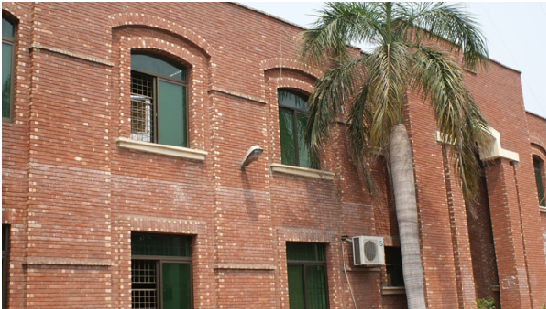Overview
The Soil Fertility Research Institute (SFRI) deals with the subject pertaining Soil Sciences that describes the physical and chemical characteristics of soil as a whole۔ Economy of Pakistan depends on the development of agriculture where as agriculture is dependent on productivity of soil. The improper fertilizer application by our farming community with continual cropping has resulted is decreased crop yield. Moreover, Government established this organization in 1962 etc.

Introduction
The government realizing the situation, commissioned first soil fertility laboratory, in late 1967, by appointing the Agricultural Chemist (Soil Fertility) at Lyallpur (Now Faisalabad) and then establishment of similar laboratories at Rawalpindi (1969), Multan (1973), Lahore, Bahawalpur (1974), D. G. Khan (1996), Sargodha (2001) and Gujranwala (2002) At the moment there are 8 divisional and 36 district laboratories providing Advisor services for soil, water and plant analysis and one laboratory is providing regulatory fertilizer analytical services under Fertilizer Control Order, 1973 at Raiwind. The fertile lands of Pakistan are ready to feed a population twice that of current Pakistan however, it needs proper management to sustain its health and fertility status. Therefore, the knowledge of nutrient status of a soil is essential to assess the optimum quantity of fertilizer and the best management practices responsible for high yield.The Punjab Fertilizers (Control) Order, 1973 (Amended) was promulgated by Government of the Punjab under provisions of the Punjab Essential Articles (Control) Act, 1973. It will help to control the fertilizer adulteration in the Punjab and ultimately reduce the cost of production. Quality fertilizers will surely increase the crops yield and reduce the pollution problems. The quality of agriculture products has prime importance in international market and for export purposes. To maintain quality, the vegetable, grain and fruit should be free from excessive fertilizer (like nitrate content) and heavy metals. The accreditation of the labs for ISO-17025 provides the analytical facilities of international standards to the government and other stakeholders.
Mission
- Assess fertilizer response in various ago-ecological zones / soil types in order to formulate economic fertilizer recommendations
- Indexation of plant nutrients in soil and plant tissue for monitoring their status
- Evaluate comparative agronomic efficiency of different commercial fertilizers
- Research on popularization of Integrated Plant Nutrition System (IPNS) for sustainable agriculture
- Find out appropriate time and method of fertilizer application in different cropping system
- Popularize the balanced fertilizer use to get economic yield. Advisory services to farming community for economic use of soil, water and fertilizer resources and reclamation of salt affected soils
- Monitoring quality of fertilizers Survey and test the suitability of ground water for irrigation purposes
- Provide analytical service to fertilizer / amendments manufacturers for quality of their products
